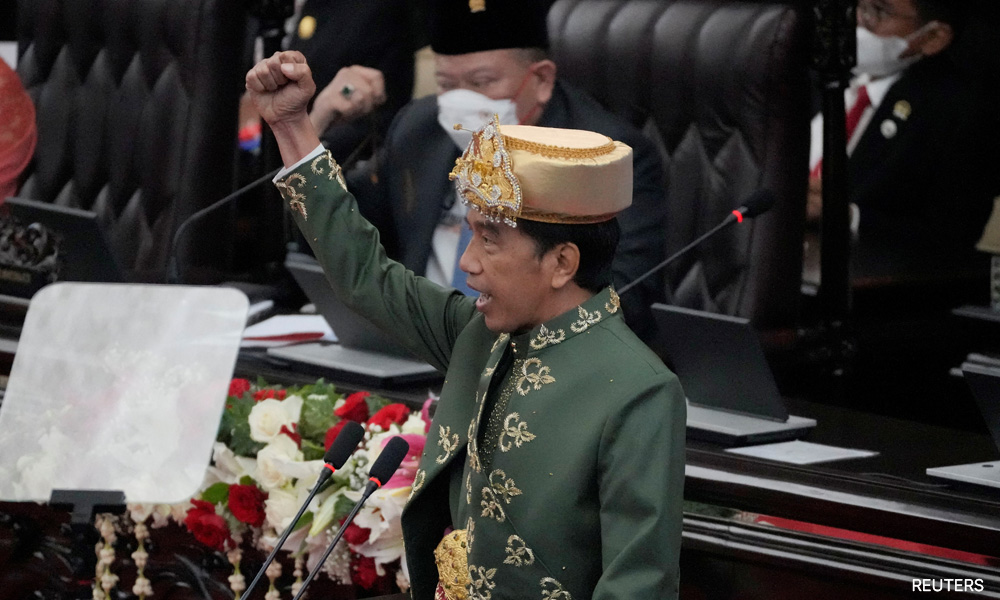Indonesia needs to reduce its energy subsidy bill possibly with a fuel-price hike, but the government would need to time the latter carefully to avoid disrupting economic growth, President Joko Widodo said in an interview with Metro TV on Tuesday.
The country has tripled its subsidy budget to 502 trillion rupiah (US$34 billion) this year, which the president said is a "very large amount", to keep prices of gasoline, diesel and some power tariffs unchanged.
"We need to find a balance between a healthy state budget and maintaining people's purchasing power, which is not easy," Jokowi, as the president is popularly known, said.
He said the caution over a fuel price hike was not due to fear over making an unpopular decision, but because the economic, social and political impact of such a move would need consideration.
The president had earlier on Tuesday proposed a US$206 billion budget for 2023 to parliament, which was slightly smaller than the budget for this year, thanks to a declining energy subsidy budget.
Jokowi proposed 336.7 trillion rupiah of energy subsidies and compensations in 2023, assuming crude oil price would drop to around US$90 per barrel and consumption volume of subsidised fuels could be maintained near this year's quota.

His energy minister Arifin Tasrif told a news conference authorities are also setting up rules to deter those who can afford non-subsidised fuel from buying subsidised gasoline.
Inflation relatively low
Indonesia's large subsidy bill has helped it keep inflation relatively low compared with more advanced economies, but the price disparity between subsidised and nonsubsidised fuels have driven a shift in consumption patterns.
State energy firm Pertamina said as of July, it had sold 9.9 million kilolitres of subsidised diesel, about two-thirds of the total quota for the year, while sales of subsidised gasoline had reached 16.8 million kilolitres, or 73% of 2022's quota.
Media reports said there have been long queues of vehicles at some gas stations in Banten and Riau provinces, and that some stations had signs saying they had run out of subsidised fuels.
"We think the 2023 state budget may have already incorporated at least 20 percent increase in Pertalite fuel price," said Satria Sambijantoro, an economist at Bahana Securities, referring to Pertamina's subsidised gasoline brand.
He noted that the government is cutting the energy subsidy by 33 percent next year while only assuming a 10% drop in crude oil price.
- Reuters

